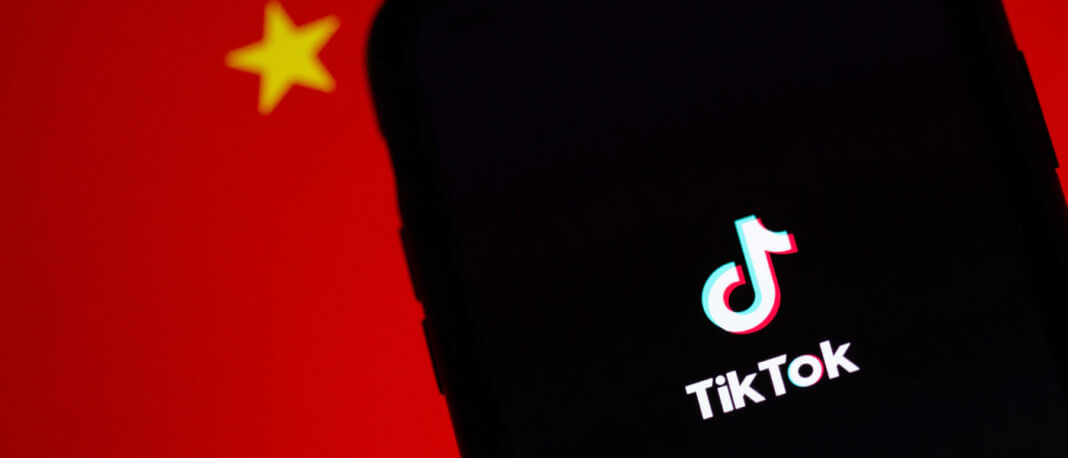TikTok is owned by ByteDance – a Chinese internet company with a valuation of US$50 billion and it has competed with western tech on a global scale, a bold move not commonly practised amongst Chinese internet companies.
With the longstanding tensions between the Trump administration and the Chinese government, it is no surprise that Trump wants none of TikTok on his turf, if not for political reasons then for reasons of national security. According to Trump, TikTok engages in “data farming” on U.S. citizens for the Chinese government. There has however been no evidence whatsoever that supports these allegations against TikTok and its parent company ByteDance. TikTok has also repeatedly denied these allegations.
This issue has been brewing for almost a year now and what was previously just talk of a TikTok ban has been put into action. An executive order was issued by the Trump administration on 6 August 2020 – giving TikTok 45 days to either sell TikTok’s American operations at a valuation of US$10 to 30 billion to Microsoft or face getting banned from America. TikTok has retaliated with a lawsuit due to various reasons in which the Trump administration then responded on 14 August 2020 and provided another 45 days extension period thus making the new deadline to be 4 November 2020.
Despite TikTok’s and ByteDance’s efforts in assuaging the Trump administration’s concerns through actions of corporate restructuring, having an entirely separate headquarter, things have sadly taken a turn for the worse. TikTok’s decisiveness on quitting the Hong Kong market upon the release of Beijing’s new national security law was not sufficient enough an assurance for America on TikTok’s stance and views on privacy.
Why did TikTok sue the Trump administration?
Oh, for a couple of reasons. The executive order was issued abruptly with only a window of 45 days for TikTok to get their business in order. This deprives TikTok of its due process. Furthermore, the executive order was issued despite TikTok’s cooperation and compliance, might we add, without any evidence, apart from hearsay, to justify an action of this magnitude. TikTok feels that the executive order dispossesses the rights of TikTok and its community as a ban would eliminate the prospect of job creation in America. TikTok also claims that a ban would “harming Americans” who seek “entertainment, connection, and legitimate livelihoods” especially during a time with an ongoing pandemic and a combustible social atmosphere to say the least. For those reasons, TikTok promises to pursue all remedies available to ensure that the rule of law is engaged and that they and their users will be treated fairly if not by the American government then by the U.S. courts.
Who are the potential buyers?
TikTok and Microsoft are still currently in the talks of buying over the TikTok operations of America, Canada, Australia and New Zealand. This, however, poses possible complications as a splitting up of a social network is something that has never been done before, what more in regional lines. It is unclear if this is even possible.
Twitter had toyed with the idea of a potential combination of both TikTok and Twitter however this idea was faced with mockery from the tech industry and resulted in comments such as “didn’t Twitter already own Vine, which was essentially TikTok before TikTok?” There isn’t much to go on about the potential partnership between TikTok and Twitter apart from it leaning towards more of a partnership-type arrangement rather than a complete takeover.
TikTok has also received acquisition proposals from companies and investors such as Sequoia Capital and General Atlantic, two major investors in ByteDance. These two attempted to buy out a majority of TikTok’s ownership in the belief that it might prevent TikTok from a forced divestment. They were however rebuffed by ByteDance as the valuation of US$50 million was thought to underestimate the true worth of TikTok. This leaves Microsoft to be the only lead. Upon Microsoft making known on its contemplating in inviting other U.S. investors to partake in its bid, both Sequoia Capital and General Atlantic both grew concerned over not having a place in a Microsoft deal and turned to the new potential tech partner Oracle who had quickly won Trump’s public support which makes it on par with Microsoft.
Why would these companies be interested in TikTok?
Both Oracle and Microsoft could stand to benefit from a deal with TikTok, should it happen. Oracle is best known for its Solaris and Java software. It is now more than just a database company that it started as. It now has its fingers in many pies including marketing automation, cloud infrastructure and had even recently partnered up with Zoom. It is still well behind many of its tech rivals such as Microsoft, Google and IBM in the cloud infrastructure market share and acquiring TikTok would help provide that needed boost to move up from its current single-digit market share. Microsoft, on the other hand, has done well for itself but it is still lacking behind AWS (Amazon Web Services) and owning TikTok would shorten that gap. With the sheer amount of data that TikTok has, it can and will add plenty of load to their infrastructure services. However, that is not the only possible outcome. Seeing as the younger generation has been leaving Facebook since the older folk took over, an old tech company taking over TikTok might not be an appealing idea to TikTok’s users. With a majority of its users being younger audiences, the buyout might wind up counterintuitive for the buyer when young users jump ship to the next big social media platform. Some say that Microsoft would be the best fit for TikTok despite its limited experience in the advertising field that has been hard hit by COVID-19.
It is still unclear if these companies are truly invested in following through with the buyout but Oracle’s shares had risen more than 2% since its talks with TikTok on acquisition began.
And just when it couldn’t get messier, Instagram and Snapchat launched Reels and features, respectively, that function similar to that of TikTok. Luckily for TikTok, these alternatives have yet to recreate and provide the same joy that TikTok has managed to do for users with its originality that which is lacking in both the alternatives.
TikTok could definitely use some wins in such trying times.





